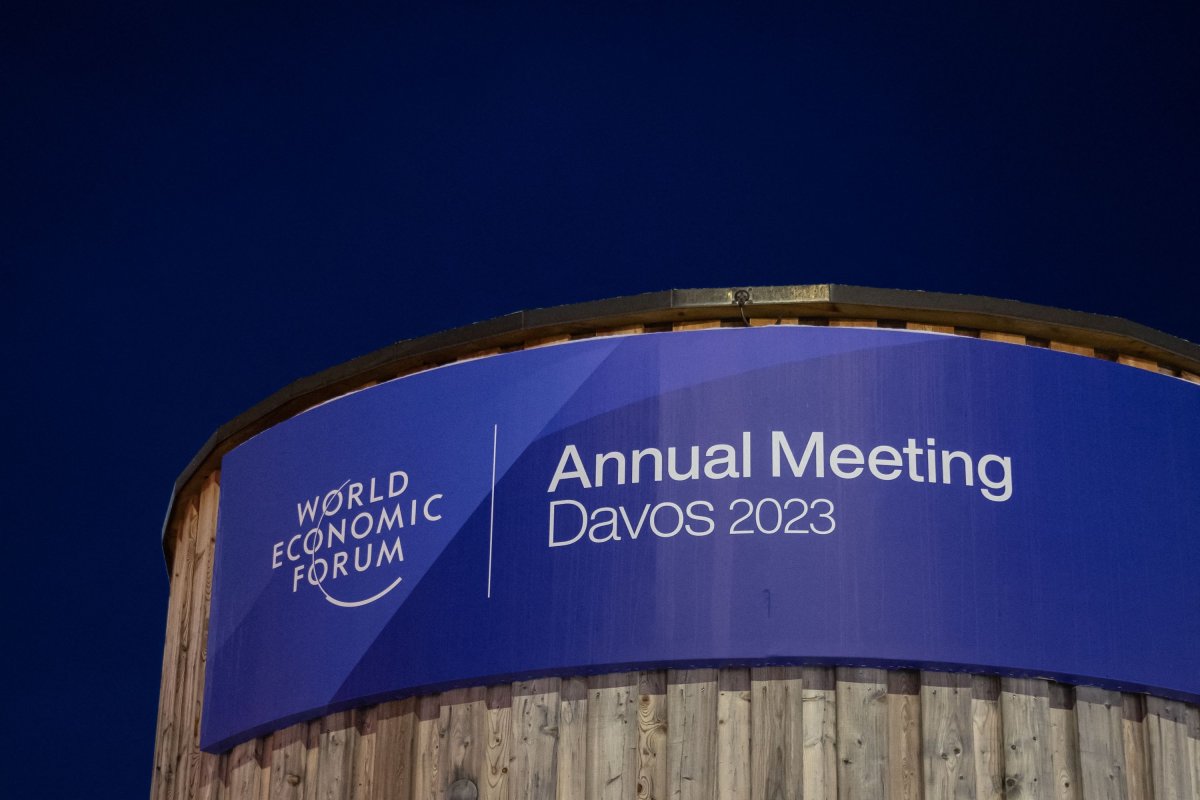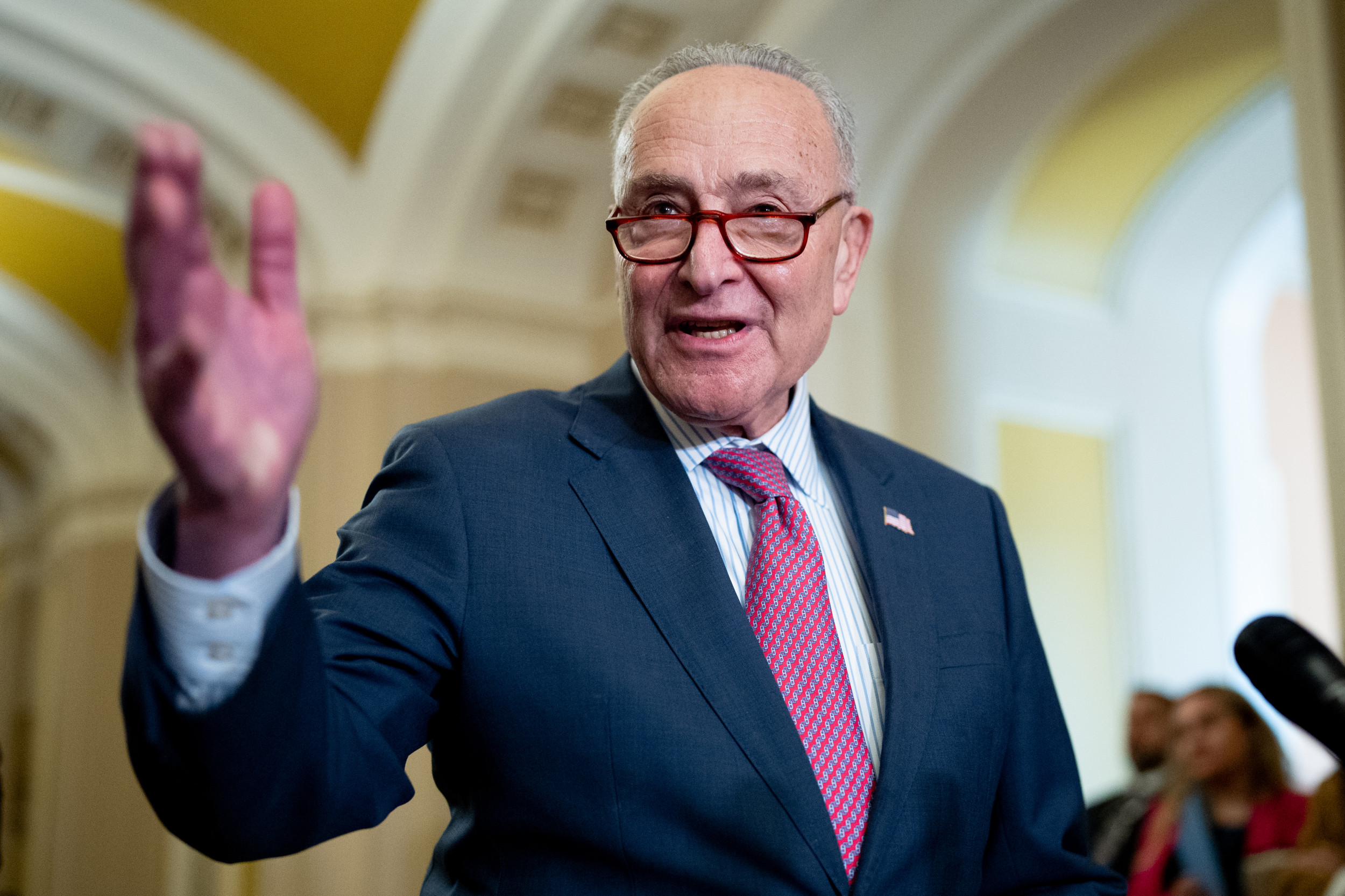In a bygone political age, an annual confab of the world's movers and shakers—such as the one Davos hosted last week—could be expected to fall into a familiar pattern. A chorus of Bretton Woods bosses, multinational CEOs, and nonprofit leaders would summon humanity into the sunlit uplands of globalization. They would tout the benefits of lowering barriers to trade and investment—cheaper consumer goods, easy access to capital, and the lifting of millions out of poverty. To unleash more of that prosperity, they would press for structural reforms in advanced and developing economies, which market-friendly governments of the right- and left-of-center would pledge to implement.
Anything to the left of that consensus was not only absent from the proceedings but left outside to protest at the gates, outraged that so much of the planet's future was being decided behind closed doors. This pattern reached its zenith at the 1999 meeting of the World Trade Organization in Seattle.
Fast forward 30 years, and the pattern seems to have turned inside out, with some of these actors having traded places. Consider Spanish Prime Minister Pedro Sánchez, a longtime critic of globalization and standard-bearer of the Spanish socialist party's leftmost faction. Back in 2017, then-EU Commissioner for the Economy Pierre Moscovici—also a socialist but of the social-liberal variant—scolded Sánchez for conceiving of globalization and social justice as necessarily "opposite aims." The following year, Sánchez would go on to form Spain's most left-wing government since the country's transition to democracy in 1978, with the far-left Podemos and a constellation of left-regionalist parties as coalition allies. This may have seemed like the culmination of a long march towards power by the globalization-skeptical Left—but the Left's relationship to globalization had markedly changed in the meantime.

Sánchez is no longer railing at multilateral institutions for imposing pay freezes, pension cuts, and privatization—he is now calling for more of those schemes, only with a left-wing bent. At home, his government has avidly picked up the UN's term "2030 Agenda" to describe its approach to poverty, climate change, and social justice, and has even created a dedicated cabinet position under that name. This has turned Sánchez into a poster child for the socially conscious strain of globalization that is increasingly taking hold in multilateral fora.
In Davos last week, the PM railed against the consequences (higher inequality) of too much global openness, urged corporations to pay more in taxes, and called for bolder action against both Vladimir Putin and climate change—all wrapped in highly affective rhetoric meant to pull the room's heartstrings.
The extent of this revolution was also apparent in Sánchez's identification of an enemy. Whereas 20 years ago, it was right-of-center governments he blamed for advancing a globalist agenda unheedful of social justice concerns, this time he blamed the same actors for doing the opposite. In his speech, Sánchez warned listeners not to cooperate with right-wing populists committed to a nationalist agenda of borders and sovereignty. He most likely had in mind those that govern in Hungary and Poland, or that have recently won elections in Sweden and Italy.
In Spain, a coalition along those lines would be Sánchez's nightmare scenario. The right-of-center Partido Popular and the right-wing Vox, on their own, can hardly summon sufficient seats in Congress at the next election to oust Sánchez. But together they can prove a serious force, one that could dismantle many of Sánchez's left-globalist legislative victories at home whilst denying the Spanish Left its international firebrand. A lot has indeed changed in 20 years.
Jorge González-Gallarza (@JorgeGGallarza) co-hosts the Uncommon Decency podcast on Europe.
The views expressed in this article are the writer's own.
Uncommon Knowledge
Newsweek is committed to challenging conventional wisdom and finding connections in the search for common ground.
Newsweek is committed to challenging conventional wisdom and finding connections in the search for common ground.
About the writer
To read how Newsweek uses AI as a newsroom tool, Click here.








